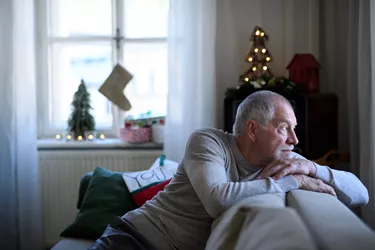How far we’ve come for better crisis care
The Crisis Care Concordat is a significant step forward in improving crisis care. We now need to see it implemented all over England.
18 February was an exciting day for our crisis care campaign. It was the launch of the Crisis Care Concordat, when 22 national organisations in England including all the responsible government departments, and professional, NHS, social care and police organisations agreed to work together to improve outcomes for people experiencing mental health crisis and produced an action plan for how they would do it. Actually ‘we’, not ‘they’. Mind took part in developing the Crisis Care Concordat as a ‘critical friend’ and by working with people with lived experience to shape the outcomes it is setting out to achieve. We are signed up to it, too.
Through our campaign hundreds of people shared their stories about crisis care – how good it can be, but too often how hard it is to get, and how unsafe it can be. By telling it how it is – to our inquiry panel, to MPs and in the media – we got crisis care on the political agenda.
That was then – what’s happening now? There are a number of national Crisis Care Concordat initiatives. For example the Care Quality Commission is carrying out a thematic review of mental health crisis care services; following a call for evidence they are inspecting selected services. But the Concordat outcomes can only be achieved if every responsible agency in every locality works together to make it happen.
Now we are working with the Department of Health to make that a reality. Together we are running regional events where people can come together to get inspired, build relationships and work out what they will do. Every locality is expected to make a declaration by the end of 2014 and to produce an action plan thereafter. You can check whether your area has made a declaration yet on the Concordat website and read about some of the good practices being developed, such as Bristol's first sanctuary where people can go who are experiencing severe emotional distress and the street triage pilots where mental health nurses work with the police.
This work could not be more urgent. Last year, budgets for crisis teams went down by 1.7 per cent while referrals went up by 16 per cent. In the last two years the number of people receiving emergency treatment out of their home area more than doubled to over three thousand. In some areas at least, mental health services themselves are in crisis.
That is why crisis care is one of the six manifesto commitments we are calling for in our general election campaign. Our message to the next Government is very clear – the job is not done yet. We need the Concordat to work nationally and locally and we need a fair share of funding for mental health.


Our campaigns
We'll fight your corner. We believe everyone with a mental health problem should be able to access excellent care and services. We also believe you should be treated fairly, positively and with respect.
Share your story with others
Blogs and stories can show that people with mental health problems are cared about, understood and listened to. We can use it to challenge the status quo and change attitudes.

















